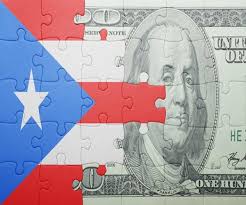Offshore Money Management Business: How to Accept Client Funds and Deposits
If you want to receive client funds into your offshore account, you must have a license or set up a specially designed offshore structure. Whether you’re raising money or managing money, if you’re not the owner of the cash in your offshore bank account, you will need an offshore money management license. In this article, I will describe how to accept client funds and deposits offshore.
First, let me explain what I mean by client funds. It’s money that doesn’t belong to you, the owner of the offshore company. The most common examples of “other people’s money” in offshore accounts are brokerage firms, FX or Bitcoin exchanges, and anyone who manages or invests money for other people.
This does not include income from selling a product or a service. Nor does it include money invested by shareholders of the offshore company. So long as those shareholders are disclosed and provide due diligence documents to the bank, and you’re operating a business, not an investment pool, the account will be in compliance.
I should point out that most offshore banks will limit the number of shareholders… not for legal reasons, but for practical ones. No bank will want to put in the time and effort to research 50 shareholders investing $5,000 each. That doesn’t make economic sense for a bank. In most cases, you will be limited to 2 to 5 shareholders per offshore company.
Also, even if all of your shareholders are approved, no offshore bank will allow you to operate a money management business without a license. You can’t combine client money into a pool and invest it for their benefit, even if they’re all shareholders of the corporation.
With that in mind, here’s how to accept client money as an offshore investment advisor.
Power of Attorney Model
In my opinion, the most efficient offshore solution for private wealth managers is the Power of Attorney model. I’ve seen the POA model work well for investment advisors with over 2,500 clients, all with managed accounts in Switzerland, and for smaller firms with accounts in Asia and the Caribbean.
You simply form an offshore company for each and every client. That offshore company is in the name of the owner (your client) and opens an account at the bank you wish to trade through. Then the client gives you (the investment advisor) a Power of Attorney over his or her company’s bank account.
With that Power of Attorney, you can invest the client’s funds per your agreement. You have full control without the need to be licensed as a broker or as a brokerage in the country where you’re trading.
The POA model completely eliminates licensing and regulation issues. It also allows you to bring client money together in an omnibus account or into a hedge fund. When combined with a white label trading platform, available from major international banks, you will present a solid image and back office to your clients.
The limitation of the POA model for managing client funds is obvious – the cost. You will need to form a separate LLC or corporation for every client and go through the account opening process at your trading bank for each.
Depending on your jurisdiction, an offshore company might cost $2,000 to $3,500 to setup and $850 per year to maintain. This cost is typically borne by the trader, so this model only makes sense for those managing larger accounts.
Bottom line: if you want to open accounts at major banks in Europe without setting up a fully licensed brokerage, the POA model is the way to go.
Bank License
Let’s jump from the easiest and most efficient option to manage client money offshore to the most complex and burdensome. If you want to go big into offshore, consider forming a fully licensed and regulated offshore bank.
An offshore banking license from a country like Dominica, St. Lucia, or Belize might cost $70,000 to $300,000+ and require capital of $1 million to $5 million. In addition, you will need a solid board of directors, 5 year business plan, an office with employees on the island, and licensing will take 6 to 16 months to complete.
Once you have your bank license, you will need a correspondent bank account. As no bank will bother to open a correspondent account for a bank with only $1 million in its coffers, you will need significantly more capital at this stage.
There’s one interesting hybrid license available to U.S. investment managers. You can form an “offshore” bank in the U.S. territory of Puerto Rico with only $550,000 in capital. U.S. Federal laws apply on Puerto Rico, but U.S. tax laws do not. This allows you to operate a bank from the island and pay only 4% in corporate income tax.
For more on Puerto Rico’s offshore banking statute, checkout: Lowest Cost Offshore Bank License is Puerto Rico.
For more information on offshore bank licenses in general, please review my articles below.
- Best Offshore Banking Jurisdictions
- Offshore Bank Advertising Rules (a review of Reg. S)
- Offshore Banking Licenses (on lowtax.net)
- Capital Reserve Requirements (on lowtax.net)
- Correspondent Accounts for Offshore Banks (on escapeartist.com)
Brokerage License
Brokerage licenses are available from a number of jurisdictions. The lowest cost and capital requirements are in Belize, Anguilla, St. Lucia, Nevis, Seychelles and St. Vincent. The top offshore jurisdictions are Panama, Cayman and BVI.
- We do not offer licenses from Comoros or any African nations. For my thoughts on a similar topic, see: Gambia Bank Licenses are a Scam
The cost to secure a brokerage license in Belize is around $35,000 and the capital required is $50,000 to $150,000 depending on a number of factors.
Licenses from the countries above do not require you pass an exam or receive a personal license (like a Series 7). The corporate brokerage license will require you demonstrate proficiency and standing in the industry, but not in your country of licensure.
Before selecting a jurisdiction for an offshore brokerage, a review of local rules should be undertaken to ensure your client base is compatible with FATCA and other island requirements.
Fund License
The next level down from a brokerage license would be a licensed or registered hedge fund. The best jurisdictions for a fund are Cayman and BVI, but licenses are also available from Nevis and Belize.
There are four options for an offshore fund in Cayman:
- You can form a licensed fund, involving a rigorous investigation by the Monetary Authority of the fund documentation and promoters. These are rare (about 10% of Cayman funds) and allow you to accept investments of any size.
- You can form a registered fund, which requires only a form setting out the particulars of the fund, together with a copy of the offering document and consent letters from the Cayman licensed auditor and Cayman licensed administrator. This is available to funds that require a minimum initial investment per investor of US$100,000. The majority of funds in the Cayman Islands are registered funds.
- You can form an administered fund if you will have 15 or more investors. To be approved as an administered fund, you must have a Cayman fund administrator providing your principal office. The regulatory responsibility (and, thus the risk and liability) for the administered fund, which has more than 15 investors and which is not licensed or registered, is placed largely in the hands of a Cayman licensed fund administrator.
- You can form a non reported fund in Cayman if you have 14 or fewer investors. Cayman will allow you to form a company and launch a fund without much regulation or oversight. Once you reach 14 investors (call it a proof of concept), you’ll need to step up to an administered, registered or licensed fund.
To set up a Cayman licensed or regulated fund, one would first form a Cayman company, then open a Cayman office or have a local registered office, and then file an application with the government. In order to be approved, the manager must have a net worth of at least US$500,000 and the manager and prove himself competent as a based on past work experience. The application process can take 3 to 6 months.
Most of the funds we set up are master / feeder structures for U.S. and international investors. Note that tax preferred investors, such as offshore IRA LLCs, come in through the offshore feeder.
For more on master / feeder funds, please contact me at info@premieroffshore.com for a confidential consultation.
Licensed but not Regulated Offshore Entities
In addition to funds, the Cayman Islands offers a licensed but not regulated option for FX and BitCoin firms. If you’re in the currency exchange or money transmission business, you might find Cayman one of the most marketable options… a jurisdictions that your clients will be comfortable with.
For a licensed Forex Brokerage operating in the Cayman Islands, see: Xenia.ky
For a licensed and regulated brokerage firm in the Cayman Islands, see: OneTRADEx.com
Note that, if you’re going to run a full-service brokerage, you must be a regulated entity. The licensed but unregulated option is available to FX and Bitcoin operators.
Another licensed but unregulated entity is a Panama Financial Services Company. This structure can be used to hold third-party funds or to operate an FX or Bitcoin business.
These structures are popular for holding client funds on behalf of a regulated entity from another jurisdiction. For example, you want to manage client money in Panama on behalf of your bank or brokerage licensed in Dominica. This is a way to outsource your investment management activities to a low-cost jurisdiction like Panama without setting up a full brokerage.
A Panama Financial Services Company is a cost-effective structure to accept client funds as an offshore money manager. Compliance is light because Bitcoin and FX are regulated by the Ministry of Commerce and Industry and not the Banking Commission.
The following activities require a banking or brokerage license in Panama, and thus may not be offered through a Panama Financial Services Company:
- Securities broker-dealer activities including investment funds, managed trading etc.
- Savings and Loan (financiera)
- Fiduciary (trust company) services
- Any banking services including credit and debit cards
- Cash money transmittal services or money exchange (e.g. bureau de change)
For an example of a BitCoin exchange operating in Panama under this license, see: Crypto Capital
Belize Licensing Options
You can generally expect Belize to be the lowest cost reputable jurisdiction for licensed businesses. Licenses available in Belize include:
- International money lending license
- Money brokering services
- Money transmission services
- Money exchange services
- Mutual and hedge funds
- International insurance services
- Brokerage, consultancy, and advisory services
- Foreign exchange services
- Payment processing services
- International safe custody services
- International banking license
- Captive banking license
- General banking license
For a list of applicable legislation, see: International Financial Services Commission, Belize
Conclusion
I hope you have found this article on how to accept client funds and deposits in an offshore money management business to be helpful. For more information on how to setup an offshore investment management firm, please contact me at info@premieroffshore.com or call us at (619) 483-1708.












Leave a Reply
Want to join the discussion?Feel free to contribute!